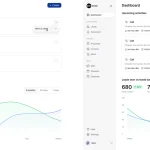
If you have paid a tax that you did not have to pay, you may want to ask yourself if you can get your money back. This can be a tricky question because it isn’t always easy to know if you can. Here are some things to keep in mind, and a few options to consider.
Overpaying taxes
If you’re overpaying your taxes, you may be eligible for a refund. You can claim a refund by filing an amended return, calling the IRS, or even sending a letter to the IRS. However, you should first consult with a tax attorney.
The IRS does not usually notify taxpayers that they have overpaid taxes. Instead, they will send a CP 268 notice. This will explain the overpayment situation and advise you of your next steps.
A formal refund request can be made by filing Form 843. To receive a refund, you must provide specific grounds for your request. When filing your refund request, you must also specify how much of your refund you would like to apply to your next year’s estimated taxes.
An informal claim for a refund is typically made in a letter to the IRS. The letter should contain the amount of the refund and explain the reasons for the request.
Returning tangible personal property
When a customer purchases a taxable item from a retailer, the retailer may give the customer a refund of part of the purchase price. If the customer returns the item within 90 days of purchase, the retailer is not required to pay sales tax on the portion of the purchase price that was returned. The customer must present a sales receipt showing that the tax was paid on the original sale.
Tangible personal property includes tools, furniture, and equipment used in a business. It also includes leasehold improvements, security equipment, and medical equipment. Some types of equipment are excluded from this definition, such as household goods held for comfort.
Taxpayers who own tangible personal property are required to file an annual return. This form must be filed by April 1. A late filing penalty of 30 percent may be assessed if the return is not filed by the April deadline. An additional 15-day extension is allowed before May 1st.
Filing within 3 years of the date the tax was paid
It is not always clear when tax refunds can be claimed. However, filing a claim for a refund within three years from the due date of the tax return is generally applicable. During this period, the taxpayer is allowed to take advantage of the Substitute for Return (SFR) program. This program is designed to give taxpayers more time to file their returns.
If the taxpayer is not able to claim the refund, they can appeal the decision within six months. In this situation, the IRS typically identifies a Section 6501(c)(8) issue. The statute states that a claim for a refund cannot exceed the amount of tax paid during the two years preceding the payment of the tax.
However, if the refund is in connection with a foreign tax, the rules may vary. For example, the United States has a treaty which allows refunds of subtitle A taxes. These rules must be followed in order to receive a refund.


